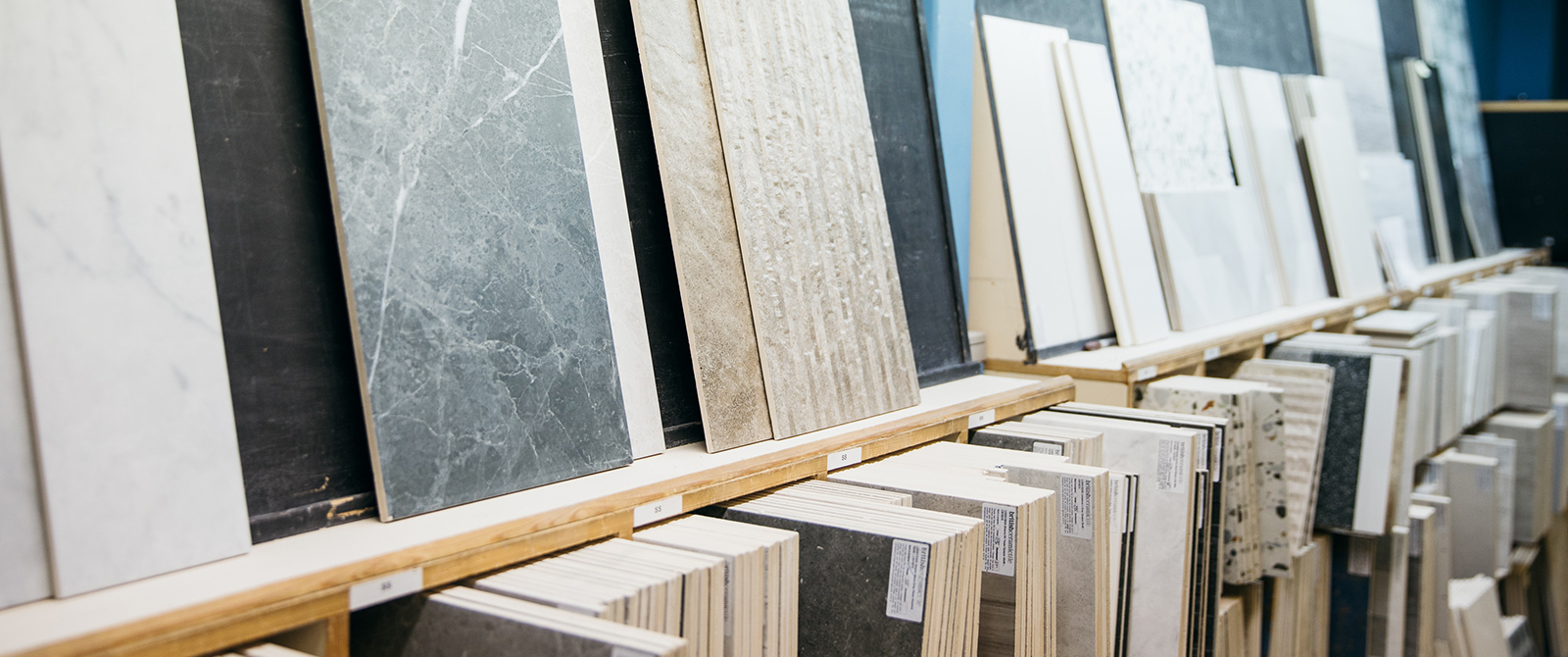
Tile FAQs
-
Tiles are both practical and popular. They are typically known for being hard wearing, long lasting and easy to maintain. Tiles can withstand wear and tear from the likes of muddy wellies and dirty paw prints to everyday spills and stains, and with a wide variety of designs shapes and finishes on the market today, there is a tile to suit everybody’s needs.
-
Our How to tile section includes helpful guides, each with a downloadable and printable guide from our professional tiler, offering advice on all kinds of tiling tools, tiling DIY and tiling preparation.
-
Ceramic tiles are usually produced from red or white clay, finished with a glaze and fired in a kiln. They are suitable for both walls and floors in light to moderate traffic areas. Porcelain tiles are produced from porcelain clays and are usually a lot denser than a regular ceramic tile. These tiles are suitable for all residential and some commercial areas where there is high traffic. ‘Full bodied’ or ‘Through’ porcelains contain the colour or pattern all the way through the tile whereas glazed tiles have a sprayed or dipped glaze mixture added which is then fired onto the surface. This is why porcelain tiles are more suitable for high-wear commercial environments.
-
Natural Stone is stone that is quarried and removed from the ground. Due to the mineral composition, natural stone is highly durable and is very resistant to chemicals and abrasion. Unlike ceramic tiles, natural stone does however require regular sealing and maintenance to keep it from absorbing spills and stains in the home.
-
These are tiles which have been produced using the latest High Definition technology printers. This gives them the true likeness of natural stone without the sealing and maintenance requirements, at a fraction of the price.
-
Generally, ceramic tiles do not need to be sealed. Unglazed tiles including porcelain and natural stone should always be sealed. Stone especially is naturally porous, so will absorb spills and stains easily. Due to its porosity, we would recommend that you seal your grout however this is not a necessity.
If you are in doubt as to whether your tiles or grout have been sealed, test the tile with a small amount of water. If the surface darkens, this may mean that it is absorbing the water which means it needs to be sealed.
-
Providing that they have been applied and sealed properly, tiles generally need little maintenance. Warm water with a non-abrasive detergent should be sufficient for the cleaning of your tiles. For this, we recommend that you use Fila Cleaner.
Natural stone or porcelain which requires sealing should be maintained according to the sealer instructions.
-
Some tiles such as Porcelain are harder wearing than others, however providing that your tiles are fitted and maintained in the correct way, they should last a lifetime.
-
PEI Rating is used throughout the tiling industry to measure the abrasion resistance of a tile.
- PEI 0 – Very little abrasion resistance. Recommended only for use on residential walls.
- PEI 1 – Little abrasion, recommended mainly for use on residential and commercial walls.
- PEI 2 – Recommended mainly for use on walls and some residential rooms such as bathrooms.
- PEI 3 – Can be used on low traffic areas such as residential bathroom, living room and hallway floors.
- PEI 4 – To be used on walls and medium to higher traffic areas such as all residential areas and some commercial areas.
- PEI 5 – Can be used on all residential areas and most Commercial high traffic areas. This is the most durable tile
-
Follow these simple instructions to install your glass splashback or upstand safely and securely.